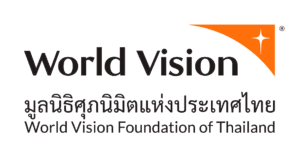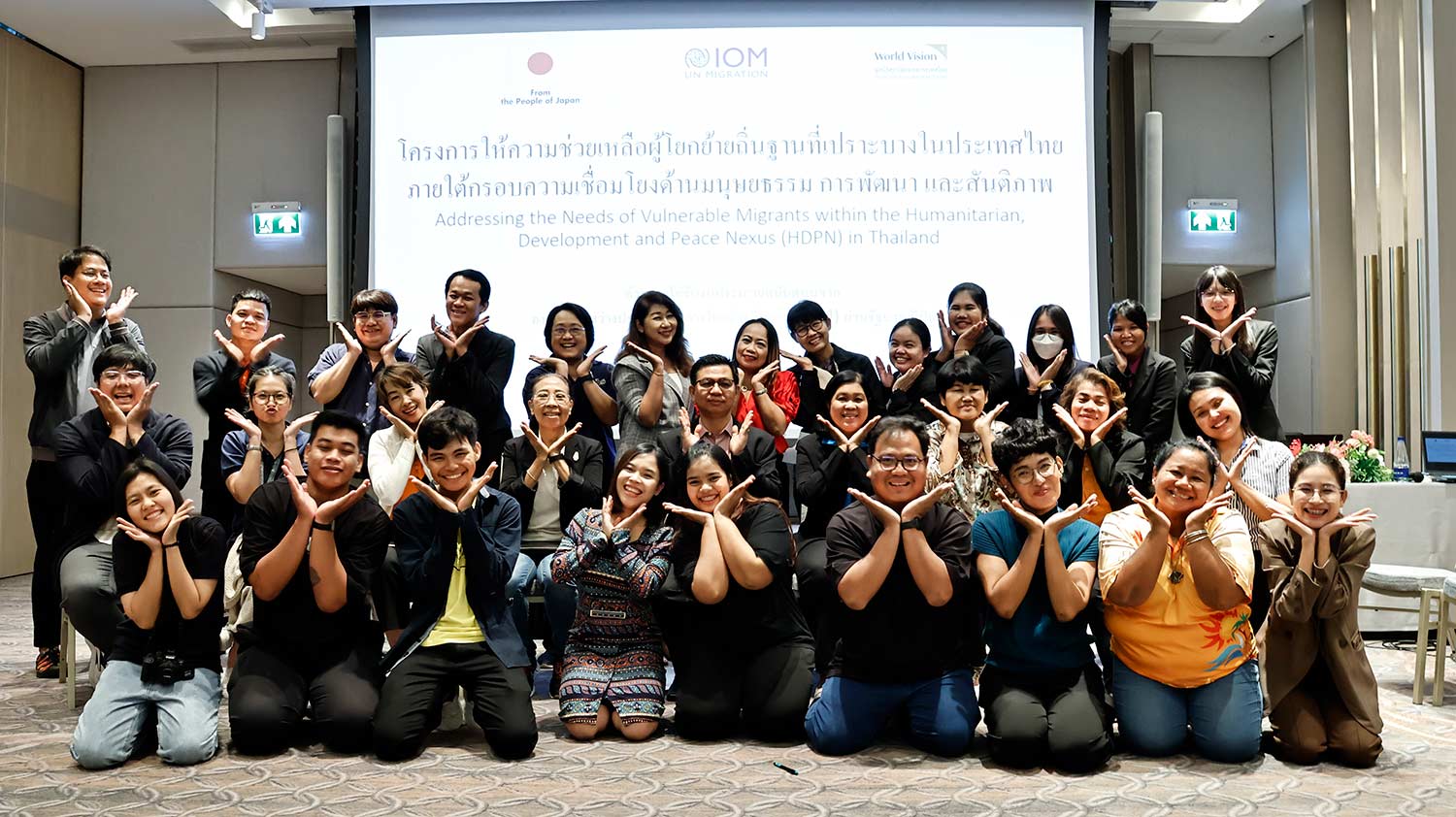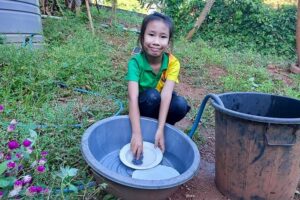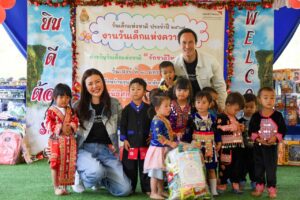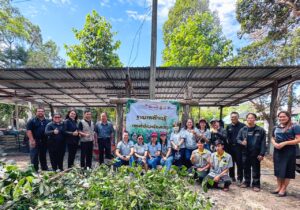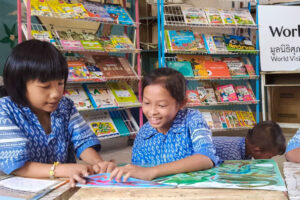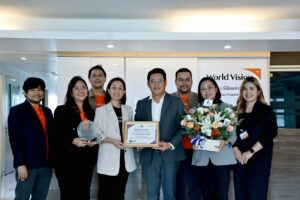World Vision Thailand held a workshop to enhance migrants’ capability in case referral mechanisms and reflect on lessons learned from the project implementation, aiming to improve case response and raise the awareness of relevant stakeholders during December 6-8, 2023 at Asawin Grand Convention Hotel, Bangkok. The workshop was attended by government agencies and volunteers, who came together to discuss policy issues and practices, focusing on assisting migrant workers. The event also aimed to create collaborative efforts between the private sector, civil society, and the government to promote access to public health services and labour protections for migrant workers. The said activity is part of the initiative called “Addressing the Needs of Vulnerable Migrants within the Humanitarian, Development and Peace Nexus (HDPN) in Thailand”, implemented by World Vision Thailand and International Organization for Migration (IOM), supported by the Government of Japan.
Mr Pannawat Thuenklin, Research Administrator, ASEAN Institute for Health Development, Mahidol University, discussed the project: “Today, we have two main groups: government officials and volunteers. Our goal is to understand their perspectives on migrant worker issues and to share their experiences. By combining these insights, we aim to develop a shared understanding and identify potential solutions. Both groups agreed that key issues are the need for more knowledge, information about relevant laws and better access to the rights that migrant workers are entitled to.”
A key highlight of this meeting was the collective brainstorming session to discuss the issues arising in each area, emphasising their severity and urgency. A notable example is the feedback from the migrant health volunteers (MHVs) who shared their past work experiences.
“At Mae Sot Hospital, there were unethical interpreters who would charge patients exorbitant fees. Instead of just paying for medical treatment, patients had to pay extra to these interpreters. Because of this, I joined the finance department to act as an interpreter between patients and the hospital. There was one case where a patient could only speak Burmese and encountered one of these unethical interpreters. The patient had to buy food, drinks, and pay the interpreter a lot of money for several days. By the time I found out, there was nothing I could do,” said Wi Oo Nai Ja, a migrant health volunteer in Mae Sot District, Tak Province.
Choo Ae Su, a migrant health volunteer in Mae Sot, Tak, who visits patients in Mae Sot District, shared, “We helped by distributing mosquito nets, cooking oil, and detergent. However, there is no clinic in the area. If people fell sick, a doctor from Mae Tao Clinic would come only once a week on Fridays. The clinic is quite far, so I thought it would be better if we could distribute basic medications to them to help treat and alleviate their initial symptoms.”
Government agencies have recognised that communication and coordination are primary challenges in their operations. World Vision Thailand’s mechanisms have facilitated the operations by improving coordination among various agencies and organisations and developing outreach materials to educate workers about their rights in their languages.
Pannawat ended, “Another interesting aspect is the knowledge sharing between government agencies and volunteers. This meeting served as a starting point for various agencies to understand each other’s work. They saw more connections through World Vision Thailand, which serves as a bridge, connecting resources and solutions to where they are most needed,”
This meeting also served as a starting point for designing assistance approaches for migrants in different areas. The goal is to ensure that all migrants, regardless of their legal status, have access to their rights and that there are systems in place to support those who are undocumented, helping them to regularise their status and access fair employment opportunities as outlined by the law. All sectors, including government, private sector, and NGOs, are encouraged to collaborate to achieve this goal.
